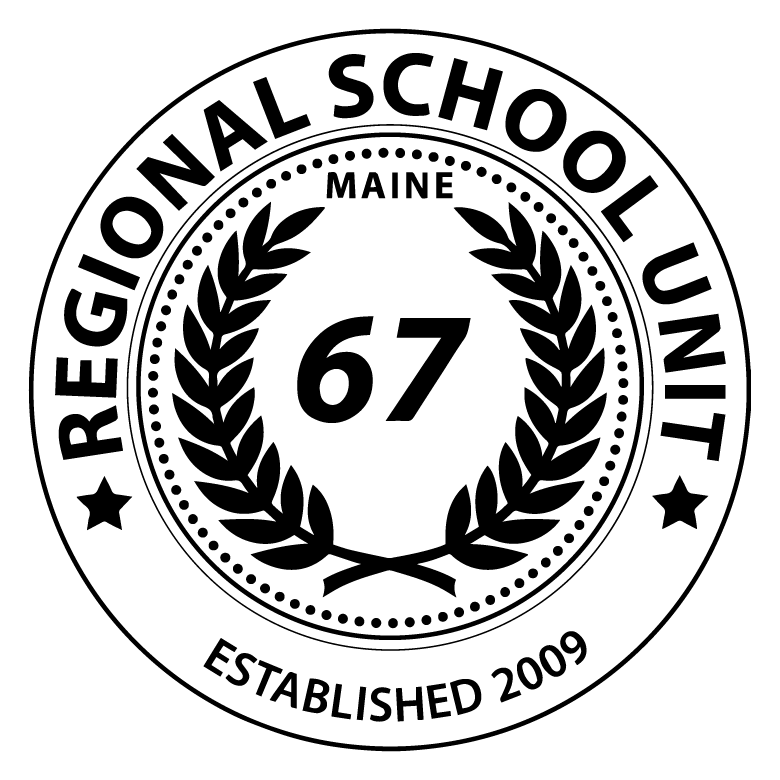MCKINNEY-VENTO
We realize that students who lack a fixed, regular, and adequate nighttime residence should not be a sufficient reason to separate students from the school learning environment. RSU No. 67 strives to ensure that students are identified and provided access to the same free and appropriate public education provided to all students in the school system. In accordance with federal and state law and regulations, RSU No. 67 shall provide students access to the instructional programming that supports the achievement of the content standards of Maine's system of Learning Results and to other services for which they are eligible. Students shall not be segregated into separate schools or programs based on their status, nor shall they be stigmatized in any way.
The federal law governing homeless students is the McKinney-Vento Bill. Under this bill, homeless learners are guaranteed the right to a free, appropriate, public education. When learners become McKinney-Vento eligible, they can remain enrolled in the schools they have been attending, although they might no longer meet residency requirements. McKinney-Vento also guarantees learners the right to enroll in a public school even if they lack the typically required documents and immunizations. In addition, McKinney-Vento-eligible learners are guaranteed the transportation they need to attend school.
According to McKinney-Vento, “homeless” can be defined as an individual who lacks a fixed, regular, and adequate nighttime residence, including children and youth:
Sharing housing due to loss of housing or economic hardship
Living in motels, hotels, trailer parks, or camping grounds due to lack of alternative adequate housing
Living in emergency or transitional housing
Abandoned in hospitals
Awaiting foster care
Having a primary nighttime residence that is a public or private place not designed for, or ordinarily used as, regular sleeping accommodations
Living in cars, parks, public spaces, abandoned buildings, substandard housing, bus or train stations
Migratory students meeting the descriptions above
DISPUTE RESOLUTION PROCEDURE FOR HOMELESS STUDENTS AND FAMILIES
The No Child Left Behind (NCLB) Act of 2001 (PL107-110, Section 722) expands the responsibility of the Maine Department of Education and LEAs to ensure educational rights and protections for children and youth experiencing homelessness. All Local Education Authorities (LEAs) must ensure coordination of their efforts on behalf of homeless children and youth with the McKinney-Vento Homeless Education Assistance Improvement Act, Title X, Part C, and DOE directives. Part of that coordination is to implement procedures for the prompt resolution of disputes regarding school selection and enrollment for homeless children and youth.
McKinney-Vento definitions:
“School of selection” as the school of origin, or the school of residence
“School of origin” is the school the child or youth attended when permanently housed or the school in which the child or youth was last enrolled
“Enrollment” is attending classes and participating fully in school activities. Parents, guardians, and unaccompanied youth must be able to initiate the dispute resolution process either in writing or orally directly at the selected school site.
PLEASE NOTE: Parents/Guardians, can expect a written response from the RSU No. 67 McKinney-Vento Coordinator, in ten (10) working days, explaining to them their rights in accordance with the resolution process outlined below should they dispute the school selection and enrollment for homeless children and youth.
DISPUTE RESOLUTION PROCESS
If a dispute arises over school selection or enrollment, the child/youth must be immediately enrolled in the school in which he/she is seeking enrollment, pending the resolution of the dispute. The enrollment happens at the district superintendent’s office through the administrative assistant who notifies the homeless liaison upon enrollment.
The homeless liaison meets with the learner, parent, and/or guardian to carry out the dispute resolution process as expeditiously (normally five (5) working days maximum) as possible. This also happens for unaccompanied youth. This first meeting occurs within the first week of enrollment in school.
During the process, the school district discusses considerations that led to the placement decision which may include the ability of the school district to provide continuity in educational programs, the need of the homeless learner for a special instructional program, the amount of time and arrangements required to transport the student to the original school district, the age of the homeless student and the school placement of siblings, and the time remaining until the end of the semester or the end of the school year.
A written explanation of the school’s decision regarding school selection or enrollment will be provided if a parent, guardian, or unaccompanied youth disputes such a school selection or enrollment decision, including the right to appeal. The written explanation shall be complete, as brief as possible, simply stated, and provided in easy-to-understand language.
If the dispute remains unresolved at the district level or is appealed, then the district McKinney-Vento Coordinator shall forward all written documentation and related paperwork to the Truancy, Dropout, Alternative Education, and McKinney-Vento State Coordinator. Upon the review of the LEA and parent, guardian, or unaccompanied youth information, the McKinney-Vento State Coordinator shall notify the parent, guardian, or unaccompanied youth of the final school selection or enrollment decision within twenty (20) working days of receipt of materials. You may reach the Maine Department of Education McKinney-Vento State Coordinator, Amelia Lyons, by phone at 207-557-1787 or by e-mail at amelia.lyons@maine.gov.
Other information to know as a parent, guardian, or unaccompanied youth:
You can provide written or oral documentation to support your positions about school selection or enrollment.
You can seek the assistance of social services, advocates, lawyers, and/or service providers in the dispute process
You will receive documentation for your records of the dispute form and the outcome of the dispute.
The RSU No. 67 McKinney-Vento Coordinator is:
Rosemarie Clark
207-794-6500
McKinney-Vento State of Maine DOE Coordinator
Amelia Lyons
207-557-1787
Below are links where you can get more information about RSU No. 67's policies, as well as some information about Maine's and national organizational support for homeless learners
